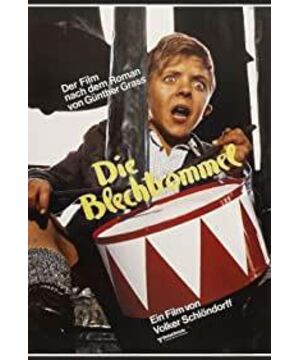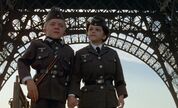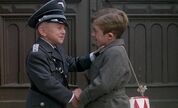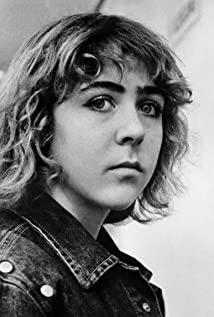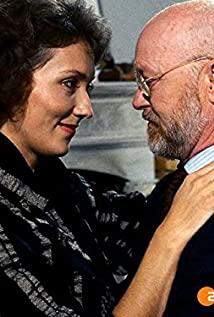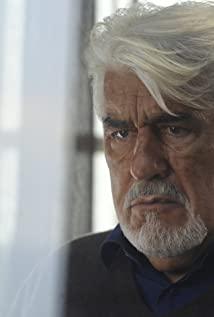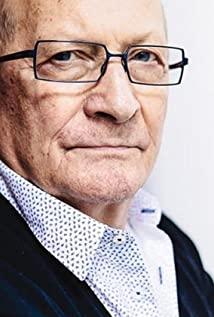The film is remarkably faithful to the original book, which is superior in time span, depth of thought, and dark humor. Therefore, this review focuses on the original work.
1. About the subject. This film is actually taken from the first two volumes of the original book, which focuses on describing the process of Oskar getting a tin drum to stop growing when he was 3 years old, and discarding the tin drum to grow again when he was about 30 years old. In terms of time, it happened to span two world wars. In terms of space, all the stories happened in Danzig, so it happened to be a system of its own, which made it easy for people to figure out the main theme of the film: from the perspective of a little boy who does not want to grow up To show the impact of the war on the people of Danzig, or more generally, the ups and downs of human nature in the war. Thinking this way isn't a big problem for understanding the movie, but it's not enough to cover the full extent of the novel. First of all, there is a third volume in the original book, which tells that after Oskar left Danzig, he grew up and became a hunchback; he once succeeded in drumming and composing music, but in the end he was disheartened and took the initiative to enter a mental hospital. There are memories of their own experiences. It can be seen that what the author wants to express is not limited to war, but a more general life. Secondly, although you can use Oscar's not wanting to grow up as a metaphor for accusing the sins of the Nazis, it is clear that the real reason for his refusal to grow up is much more than that. All kinds of hypocrisy, betrayal, cruelty, and death in the adult world disgust him , and the confrontation with religion, etiquette, race, ideology also confused him. Therefore, what such a novel shows is the variety of life. It is an ode to the truth, the good and the beautiful, the pity for the poor and the scourge of the ugliness.
2. About metaphors. As a representative work of European magic, the novel is full of black humorous satire and absurd plots. The former guarantees the depth of the film's thoughts, while the latter helps attract readers' interest. The film also tries to maintain this style, such as the first perspective when Oskar was born, the promiscuous court that Oskar saw when he opened the curtain when he was reading, and the shocking sight of a fisherman catching an eel with a horse's head while walking on the beach. As for the novel's most important imagery, the tin drum, it's not hard to see that it's a reference to innocent childhood or the good things that disrupt Nazi rallies after all; The latter is reminiscent of the "Crystal Night" in which Hitler persecuted the Jews (also shown in the book and in the film), so it is a symbol of evil and bewitchment. Oskar finally abandoned the tin drum and chose to grow up, which does not mean losing those beautiful qualities, but more of a compromise, a courageous face; what's more, he just stopped developing his physique, but his mind is always growing , wishful thinking to keep the tin drum can only be self-deception.
3. About Danzig. Danzig, now Gdansk, a city with a population of several hundred thousand, has repeatedly left its name in the history of the 20th century. In the early morning of September 1, 1939, the German army blitzed Danzig, marking the official outbreak of World War II. Forty years later, the well-known Solidarity trade union was established at the Lenin Shipyard in Gdansk, and its coalition government formed by defeating the Polish Communist Party in 1989 became the trigger for the upheaval in Eastern Europe and the disintegration of the Soviet Union. Danzig originally belonged to Germany and was assigned to Poland after the First World War. However, since most of the population of Danzig is still German, it is difficult to manage. Therefore, the Free City of Danzig was simply established and has great autonomy in internal affairs. During World War II, Danzig re-merged with Germany; after World War II, the Free City of Danzig was cancelled, the Germans were expelled and replaced by Poles who migrated from other regions, so today's Gdansk gradually formed. Due to historical reasons, Danzig people have always been divided into pro-German and pro-Polish factions, and the lack of Danzig's sense of identity is also their lingering regret. Oskar's mother's entanglement between the two men is the best analogy, and little Oskar's feelings for the two suspected fathers are also love and hate. A more important background is that the novelist Grass himself was born and raised in the Free City of Danzig. His father is German and his mother is Polish; he joined the German army during World War II and was captured later. When he was released from a US prisoner of war camp, Danzig had belonged to Poland and he was homeless. This kind of experience and experience of him was strongly brought into his works. In fact, this book is only the first part of the "Danzig Trilogy". Equally shocking.
Young actor David Bennent, who plays Oskar, also suffers from developmental arrest. He was 12 at the time of filming. And the actor who played the other dwarf was indeed almost 50 years old at the time.
View more about The Tin Drum reviews


